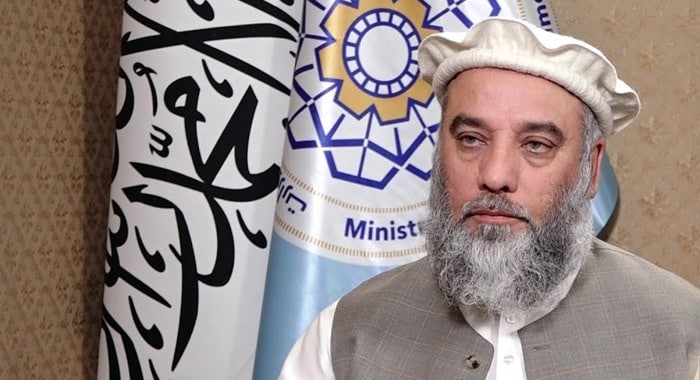Amid Pakistan’s intensified deportation drive against undocumented Afghan nationals, Acting Minister of Industry and Commerce of the Islamic Emirate of Afghanistan, Nooruddin Azizi, visited Islamabad on Wednesday and called for the voluntary return of Afghan refugees, offering tax exemptions and limited facilities as part of Kabul’s repatriation push.
Speaking to Afghan businessmen and migrants residing in Pakistan, Azizi claimed that the Islamic Emirate had taken steps to facilitate voluntary returns and improve the living conditions of returnees. However, he offered little detail on how the Taliban-led administration—grappling with widespread poverty, lack of infrastructure, and international isolation—plans to sustainably reintegrate thousands of returning families.
According to a statement from the Afghan Ministry of Industry and Commerce, Azizi announced the formation of a high commission to address migrant issues and the setup of a special camp to support returning traders and manufacturers. The announcement, however, has drawn skepticism from analysts familiar with Afghanistan’s struggling economy and limited capacity to absorb large-scale returns.
Azizi also stressed the need for bilateral dialogue and coordination with international donors and regional actors, urging adherence to UNHCR standards for a “safe and dignified” return. Yet, critics argue that the Taliban regime’s internal policies and lack of basic freedoms remain key obstacles deterring voluntary repatriation.
The visit comes as Pakistan continues its phased crackdown on undocumented migrants, most of whom are Afghans who fled decades of conflict and, more recently, the Taliban’s return to power in 2021. Despite Islamabad’s repeated calls for cooperation, Kabul’s responses have been seen as largely symbolic, with little substantive action to facilitate the smooth return or resettlement of its nationals.
Azizi’s trip marks another attempt by the Afghan interim government to project administrative capability on the international stage, but whether these promises will translate into meaningful outcomes for displaced Afghans remains to be seen.





